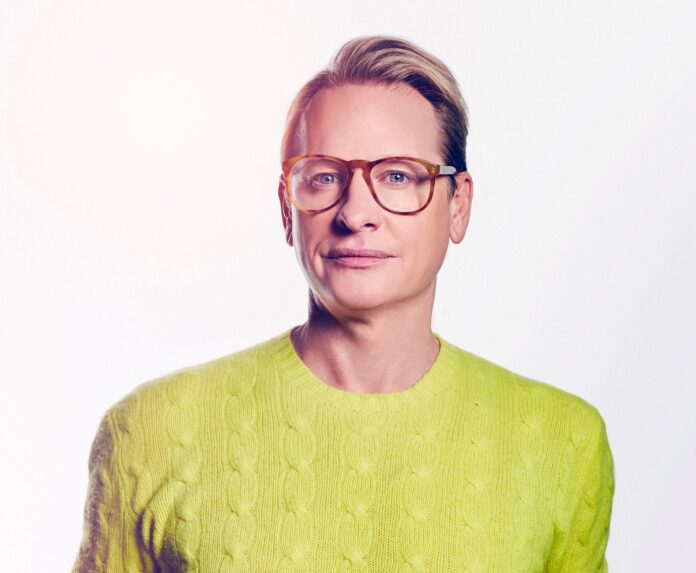On June 4 at the PGN Stonewall Awards, Carson Kressley will receive the Visibility Award in recognition of his work to increase awareness of the LGBTQ community. In 2003, Kressley became known worldwide as the fashion and styling expert on “Queer Eye for the Straight Guy.” Unlike characters on scripted shows like “Will and Grace,” Kressley and his four colleagues appeared as their authentic selves and provided TV viewers with a window into LGBTQ people long before the wider acceptance of the community we see today.
After appearing on “Queer Eye” for five seasons, Kressley appeared on numerous television shows as host and guest. In 2015, he began serving as a judge on “RuPaul’s Drag Race” and “RuPaul’s Drag Race All Stars.” He has also authored several books, including the children’s book “You’re Different and That’s Super.”
Kressley spoke to PGN about what visibility means to him and how “Queer Eye” helped him in his coming out process.
What does Pride and Pride Month mean to you in 2023?
Oh gosh, you think we would be getting better every year and we’d have so much to celebrate, but it seems as though our equal rights and our ability to exist is now coming into question yet once again. So, I think Pride this year for me is one of celebration, certainly, for all of the amazing advancements we’ve made and the gorgeousness of our community. But it’s also a time to be vigilant and to be educated and be aware of all the attacks on our community coming from so many different places. So it’s really twofold this year for me.
How does it feel to receive an award for the work you’ve done in increasing visibility for the LGBTQ community?
Well, it’s always nice to be recognized. I think that’s so gracious of the people giving me the award. And you know, when I started out on “Queer Eye for the Straight Guy,” which was 20 years ago, my goal was just, you know, get rid of mullets and pleated khakis. I didn’t realize that there would be social implications beyond the simple concept of the show, which was making people over. Anytime you’re on television, or in the media, or any place where people can see you, it has an impact, and I’m so thrilled to be part of shows to queer shows like “Queer Eye” and “Drag Race” that are seen all over the world. Young people especially can see LGBTQ people surviving, thriving, and being celebrated for exactly who they are. And I think that’s very, very powerful. I think of the old adage “if you can’t see it, you can’t be it.” So I think visibility is incredibly important.
Do you have a favorite moment of LGBTQ acceptance from “Queer Eye”?
I would say, you know, everybody who we worked with on the show, all of the heroes. were incredibly gracious and, I think, had a newfound respect and acceptance for gay people. However, I think probably the most surprising thing is that that show helped me accept myself, because it was the first time when my sexuality was actually not in the shadows and not cloaked with a bit of shame. Instead, it was out there in the open and being celebrated. I think that was a real pivotal moment for me in my coming out process.
How do you feel the challenges of being openly LGBTQ have evolved over the decades?
I think we’ve made amazing advances in having our community be accepted, and we still have so many challenges. Being connected online and having media that streams across all platforms all over the world makes us more visible and allows young people to see people like themselves thriving. But it also opens them up to hate and bullying online too. So it’s a double edged sword, and I think we just keep moving forward. And I’m very, very proud of the progress we’ve made that allows young people today to have support. It’s just about focusing on the positive and not really paying attention to the negative that’s still out there.
Philadelphia has played a huge role in LGBTQ history. And yet people seem to still focus on New York for Stonewall or DC for legislation. What message do you have for LGBTQ Philadelphians who are fighting for equality and visibility?
It’s the City of Brotherly Love. I think we lead with love and acceptance, even in the face of hate and discrimination and ignorance. I think a big part of [LGBTQ discrimination] is just people not being educated. I think we have to keep leading with love and realize that we have a strong tradition of LGBTQ rights and, actually, human rights in general in Philadelphia. The city was founded by Quakers and pacifists who just wanted people to coexist peacefully together. So I think it goes way back.
What are some of your favorite things about Philadelphia?
Philly people are the greatest. They’ve got a lot of civic pride but no pretension about it. And it’s a gorgeous city. Walking around, there’s the most beautiful architecture, both old and modern. There’s so much history there. There’s amazing food. There’s one of the best malls in the country. There’s world class shopping, and I just love getting back there to visit. I think there’s so many hidden gems that you get to know or discover over years’ worth of time.
